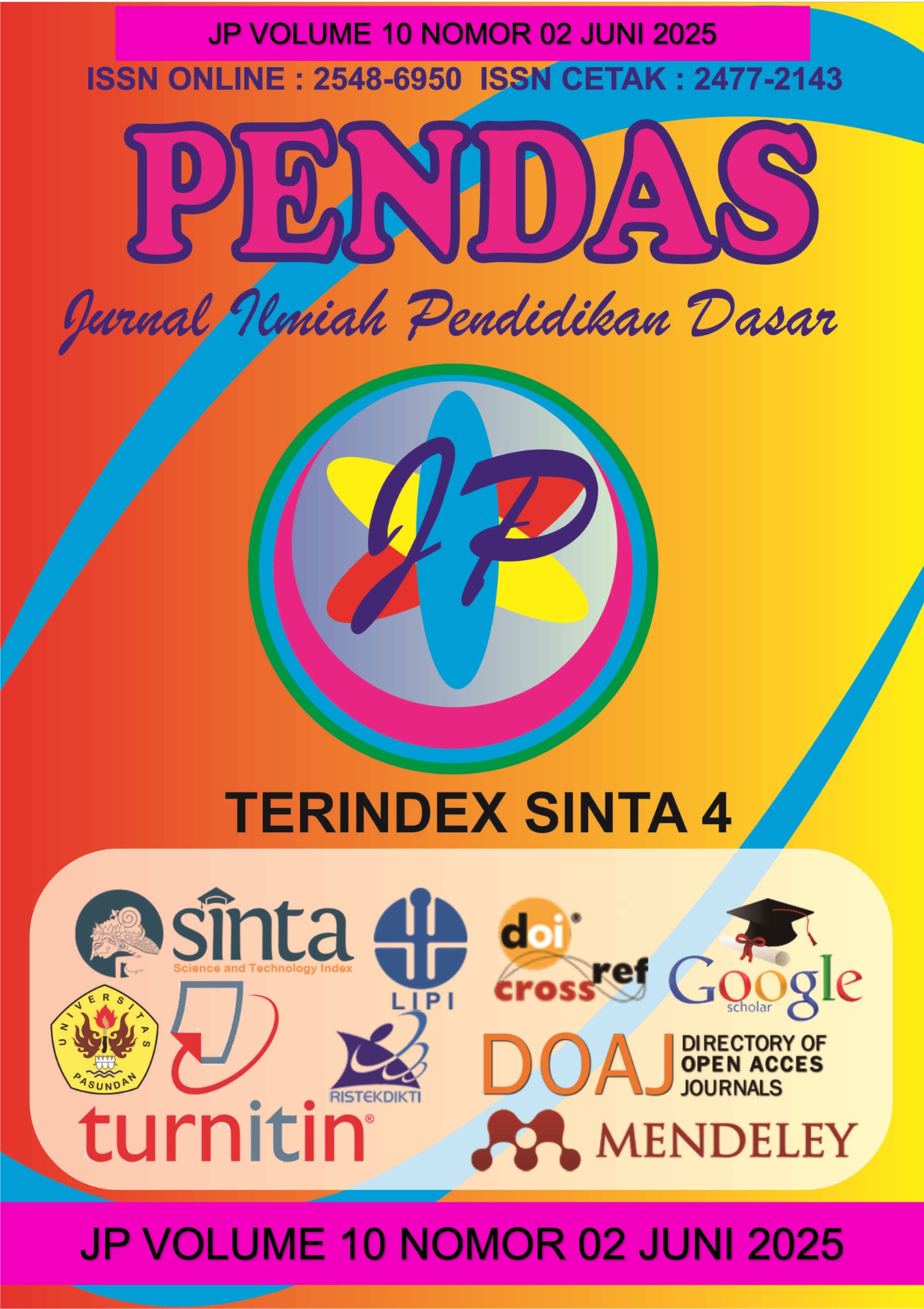PERAN PEMBELAJARAN TAHFIDZ BERBASIS METODE UMMI DALAM MEMBENTUK NILAI-NILAI KARAKTER SISWA DI SD IT HIDAYATULLAH
DOI:
https://doi.org/10.23969/jp.v10i02.25059Keywords:
tahfidz al-qur'an, ummi method, character valuesAbstract
Early cultivation of character values is an important element in basic education. One effective approach to shaping student character is through learning to memorize the Qur'an. This study aims to examine the role of tahfidz learning based on the UMMI method in shaping students' character values at SD IT Hidayatullah Yogyakarta. This research uses a descriptive qualitative approach with data collection techniques through interviews, observations of tahfidz teachers, and program documentation. Data analysis was conducted using the Miles and Huberman model, including data reduction, presentation, and conclusion drawing. The results show that the UMMI method in tahfidz learning can instill character values systematically through structured learning stages, starting from placement tests, student grouping, murojaah process, simak-baca, to daily evaluations, volume increases, and munaqosah. The dominant character values that are formed include religion, honesty, discipline, hard work, love of reading, and innovation. This program not only targets the ability to memorize the Qur'an, but also forms students' positive behavior and habits by Islamic values. Thus, learning tahfidz based on the UMMI method is proven to play a significant role in the formation of student character values in an integrated Islamic elementary school environment. The results show that the UMMI method in tahfidz learning can instill character values through organized learning stages, such as placement exams, student grouping, murojaah process, simak-baca, daily evaluation, munaqosah, and volume improvement. Religion, honesty, discipline, hard work, love of reading, and innovation are the dominant character values. The program not only teaches students to memorize the Qur'an, but also teaches them to behave and conduct themselves in a way that is following Islamic values.
Downloads
References
Anasri, A. (2019). Membentuk Karakter Dengan Al-Qur’an, Satu Perspektif Pendidikan Islam. Al-Fikra : Jurnal Ilmiah Keislaman, 17(2), 218. https://doi.org/10.24014/af.v17i2.6341
Anjani, R. S. (2023). Al- Qur ’ an Dan Hadist Sumber Hukum dan Pedoman Hidup Umat Muslim. Jurnal Region: Jurnal Agama, Sosial, Dan Budaya, 1(6), 531–541.
Aziz, A. (2020). Pendidikan Karakter Anak. 2507(February), 1–9.
Fatimatuz, Z. (2022). Perkembangan Kognitif-Psikososial Santri dalam Menghafal Al-Qur’an di Pondok Pesantren Tahfidz Anak Yanba’ul QUR’AN Tersobo Prembun Kebumen Jawa Tengah.
Mochammad Ashabul Yamin. (2021). Akulturasi Panca Indra Metode Yadain Li Tahfizil Quran. Tajdid, 20(2).
Rustiana, D., & Ma`arif, M. A. (2022). Manajemen Program Unggulan Tahfidz Qur’an dalam Meningkatkan Kualitas Hafalan Al-Qur’an Siswa. Kharisma: Jurnal Administrasi Dan Manajemen Pendidikan, 1(1), 12–24. https://doi.org/10.59373/kharisma.v1i1.2
Thalib, M. A. (2022). Pelatihan Analisis Data Model Miles Dan Huberman Untuk Riset Akuntansi Budaya. Madani: Jurnal Pengabdian Ilmiah, 5(1), 23–33. https://doi.org/10.30603/md.v5i1.2581
Wajdi, F., Fauzia, S., & Hakam, A. (2020). Evaluasi Program Tahfidz Melalui Media Sosial di Yayasan Indonesia Berkah. Jurnal Online Studi Al-Qur An, 16(1), 69–88. https://doi.org/10.21009/jsq.016.1.05
Zayadi, A. (2023). Survei Kemenag, Indeks Literasi Al-Qur’an Kategori Tinggi. Kamis, 12 Oktober 2023. https://kemenag.go.id/nasional/survei-kemenag-indeks-literasi-al-qur-an-kategori-tinggi-w0A7W
Downloads
Published
Issue
Section
License
Copyright (c) 2025 Pendas : Jurnal Ilmiah Pendidikan Dasar

This work is licensed under a Creative Commons Attribution 4.0 International License.














































